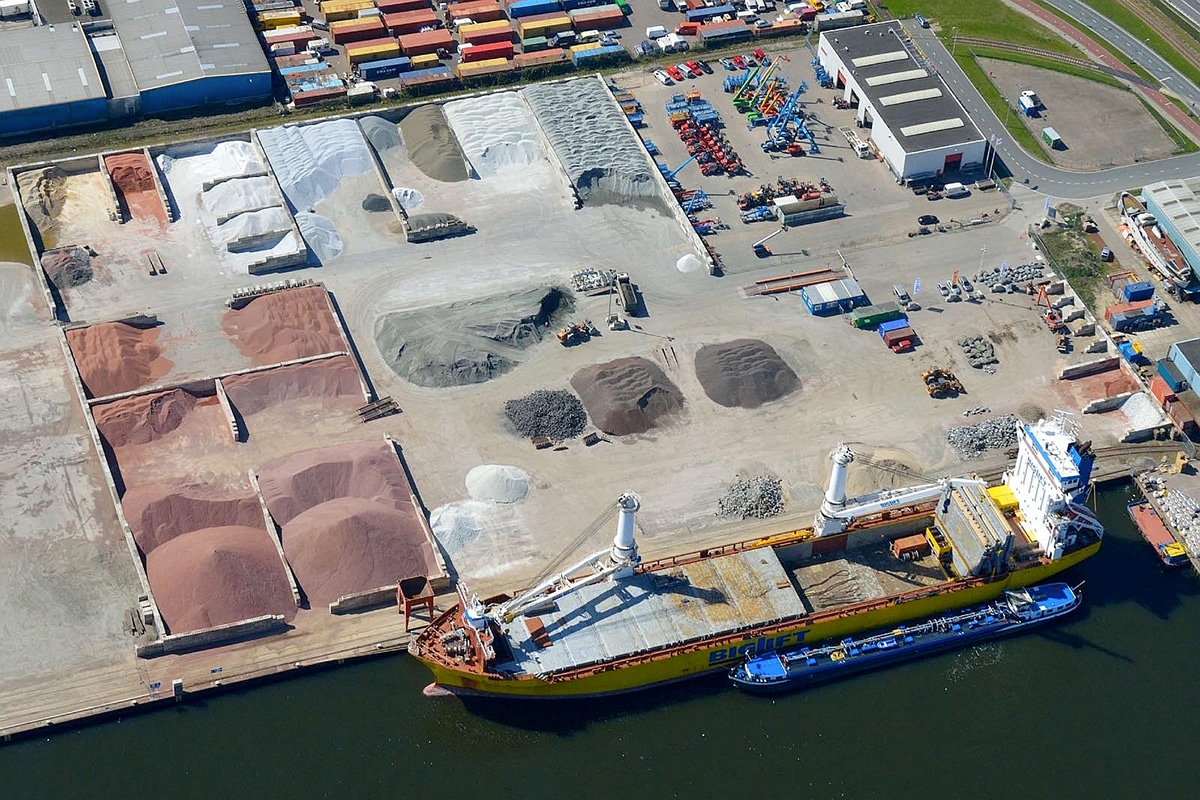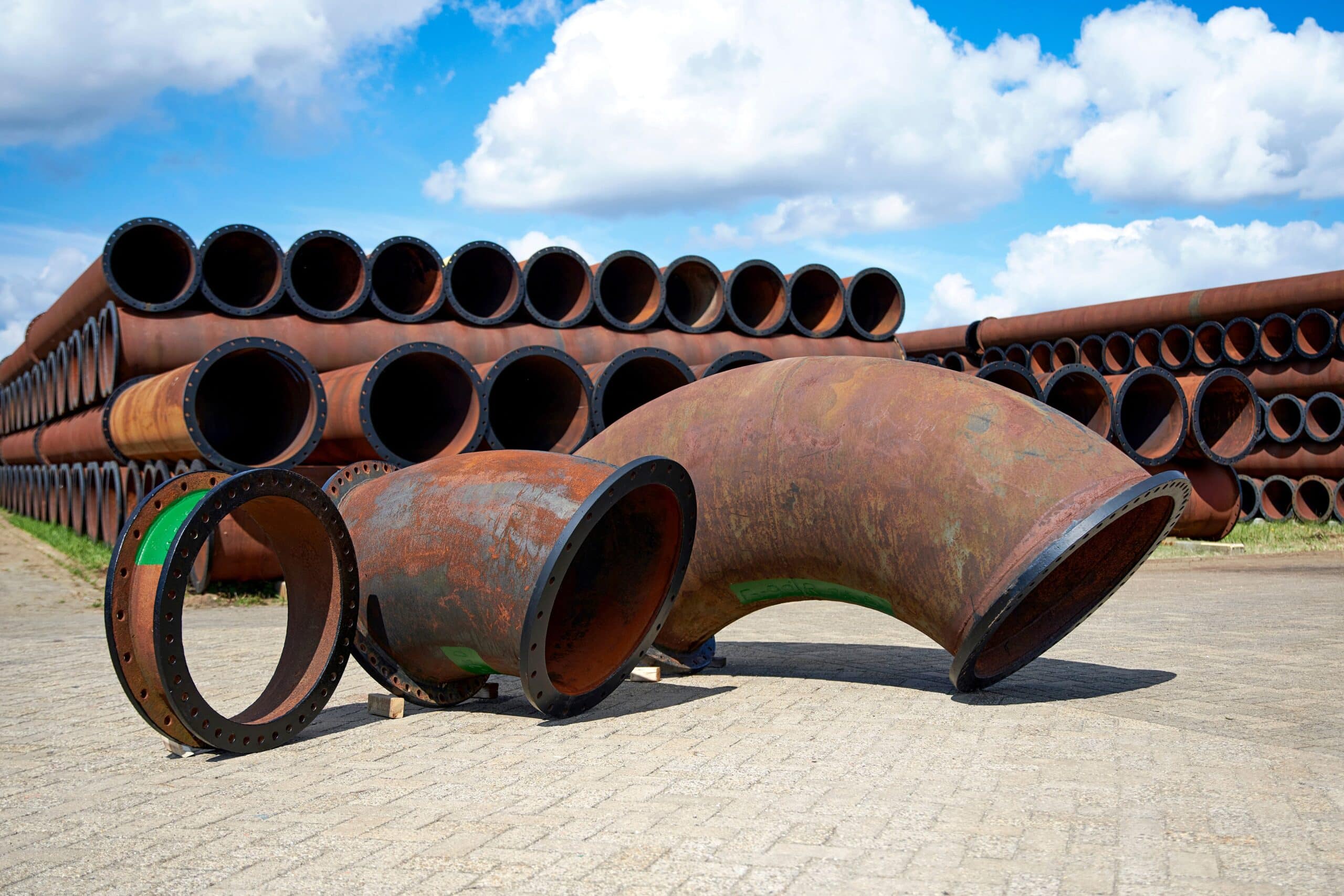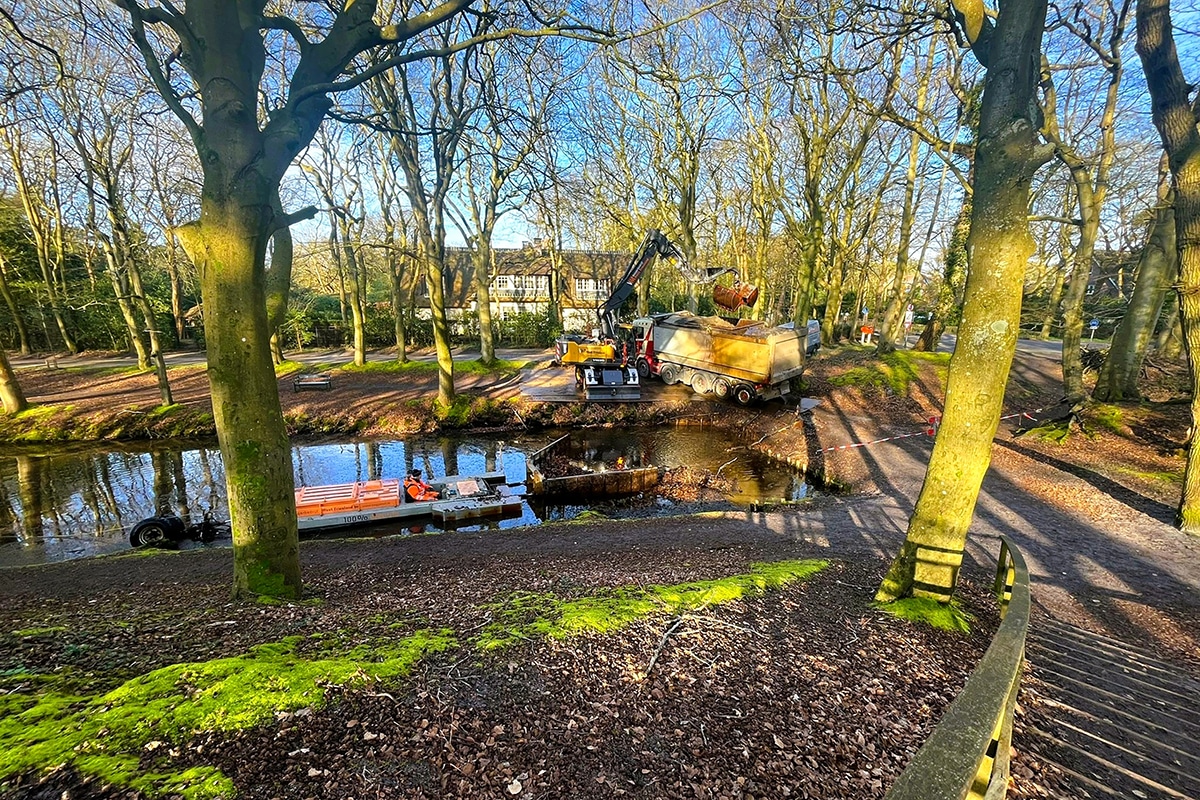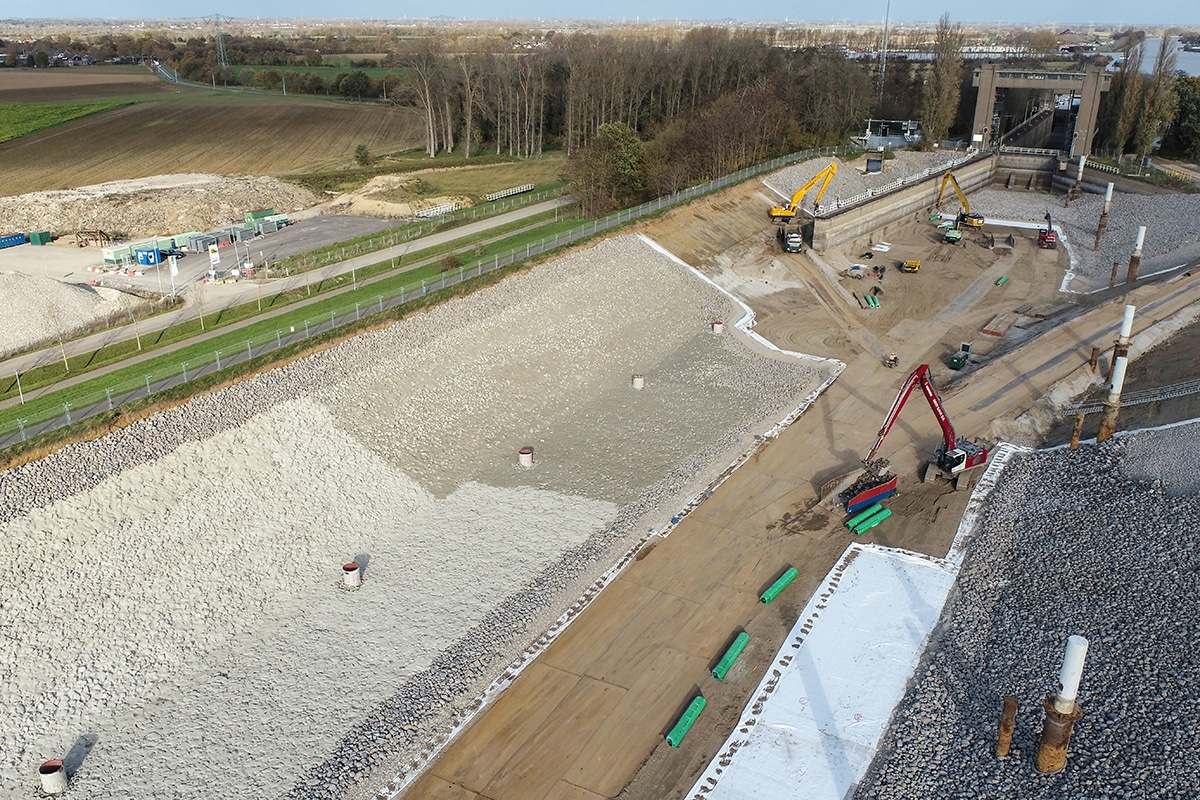
ArcelorMittal provides optimizations in sheet piling use at Tiel-Waardenburg dike reinforcement project
Under the motto 'together, smart, strengthening', the dike between Tiel and Waardenburg is being strengthened over a length of about 19 kilometers by construction consortium Mekante Diek. Central to the approach is the joint search for sustainable solutions. ArcelorMittal was therefore involved at an early stage to find optimizations in the use of sheet piling, with great success. Moreover, it is the first project in the Netherlands to use the EcoSheetPile™ Plus, a sheet pile produced from scrap metal and 100% green electricity.
"Pretty soon after being awarded the contract, we joined the design team at Mekante Diek to look at outline optimizations in sheet piling," begins Roel Bijlard of ArcelorMittal. The steel sheet wall lends itself perfectly to this type of dike reinforcement project by eliminating two failure mechanisms (piping and macro-instability) in one fell swoop. "The early cooperation is primarily aimed at reducing the overall weight of the sheet piling solution. Because less steel in the ground, in addition to cost savings, also means huge savings in terms of sustainability and CO2-emissions."

Much lower environmental impact
The greatest optimizations in sheet pile usage have been achieved by staggering the sheet piles. "Or combining and alternating a long sheet pile of, say, 16 meters with a shorter format sheet pile of 12 meters," Roel explains. "The longer sheet pile provides the necessary stability, with the shorter sheet pile creating the through wall. We can apply this optimization at several locations here on the Tiel-Waardenburg project. That results in significant savings." Beyond that weight optimization, ArcelorMittal is making another important contribution to the sustainable nature of the project. "We are producing and delivering our EcoSheetPile™ Plus sheet piles here for the first time in the Netherlands. As with the regular EcoSheetPile™, the steel of the Plus variant is also produced in an electric arc furnace from approximately 100% scrap. That fact alone leads to a much lower environmental impact of 427 kg CO2 per ton compared to steel from a blast furnace, accounting for approximately 2,000-2,500 kg of CO2 per ton. With the EcoSheetPile™ Plus variant, we also guarantee that the steel was manufactured with 100% green power, reducing the impact even further to 359 kg of CO2 per ton."

SPDs
New EPDs for both variants of the EcoSheetPile™ have been available since April 2023. "Because we were affiliated with Mekante Diek's design team, we were able to offer the EcoSheetPile™ Plus in anticipation of that publication. This enabled Mekante Diek to count on very favorable values of +/-50 kg CO2 per m2 wall. Then you really do make the difference," Roel says with pride. "We also ensure that transport is as sustainable as possible. The sheet piles are transported from the factory in Luxembourg by barge to the project site." Meanwhile, ArcelorMittal has delivered some 3,000 tons. Another 1,500 tons will be added this year. However, the entire project covers 18,000 tons of EcoSheetPile™ Plus in mostly AZ24-700 sheet piles from 12 to 18 meters. The remaining tonnage will be delivered and installed in phases through 2025.
The sheet piles are installed by vibration or compression depending on the local situation. The credo is: vibrate where possible, press where necessary. "Not everything is fixed in advance," Roel knows. "On certain parts of the route, the way in which the sheet piling will be installed is examined on site during construction. For these locations, we supply sheet piles in such a way that they can be installed in both ways. Again, a great example of 'acting together, smart and reinforcing'."
Heeft u vragen over dit artikel, project of product?
Neem dan rechtstreeks contact op met ArcelorMittal Projects Europe B.V..
 Contact opnemen
Contact opnemen




